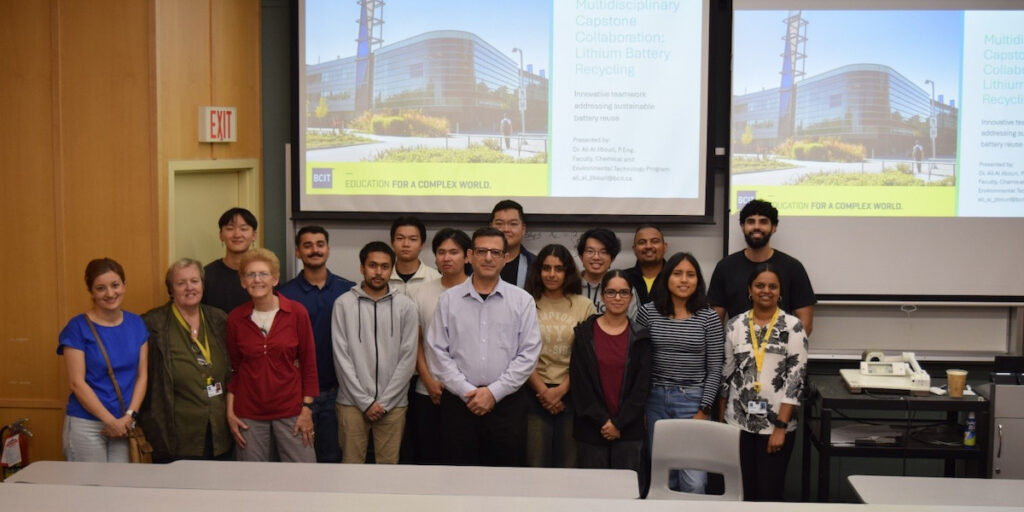
With the rise of electric vehicles, battery waste is rapidly becoming a major environmental and strategic challenge. In response, students at the British Columbia Institute of Technology (BCIT) have launched a bold, multidisciplinary initiative to develop an industrial-scale lithium battery recycling system using Supercritical Carbon Dioxide (CO₂) — a green and efficient method for metal recovery.
This innovative project is proudly funded by the Canadian Colleges for a Resilient Recovery (C2R2) and the Wawanesa Climate Champions Youth Innovation Grant, and it exemplifies BCIT’s commitment to sustainability, applied research, and career-ready education.
“Our students are working on extracting valuable metals from the black mass of spent lithium-ion batteries using supercritical CO₂,” said Dr. Ali Al Jibouri, Faculty in the Chemical and Environmental Technology program and project lead. “This supports the circular economy and gives students exposure to advanced lab techniques while addressing a real-world environmental issue.”
Multidisciplinary collaboration in action
The project brings together students and instructors from:
- Chemical and Environmental, Mechanical, and Electrical Engineering programs (School of Energy, and the School of Construction and the Environment)
- Engineering Management program (School of Business + Media)
Strong student design teams have been established across these disciplines to collaboratively engineer the industrial-scale version of the recycling system. The pilot system has already been developed and tested, demonstrating the potential for commercial deployment.
Hands-on learning meets climate action
Students are gaining practical experience in:
- Supercritical CO₂ extraction and chemical processing
- System design and optimization
- Environmental management and waste treatment
- Cross-functional teamwork and leadership
The process includes crushers, millers, high-pressure reactors, filters, and pumps to extract and purify valuable materials such as lithium, nickel, and cobalt, while integrated waste treatment systems ensure environmental compliance.
A vision for a cleaner, more resilient future
Canada currently relies heavily on imported critical minerals for battery manufacturing—posing both economic and strategic vulnerabilities. By advancing domestic recycling technologies and improving resource recovery, this initiative contributes to national resilience and long-term resource independence.
This project not only prepares students for careers in emerging green industries but also strengthens BCIT’s leadership in sustainable technology development. It reflects the power of interdisciplinary collaboration in solving complex sustainability challenges.




